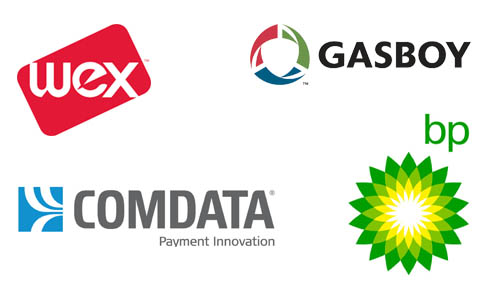Learning Zone
How to select the best fuel cards for your fleet
With fuel being one of the largest operating expenses, fuel cards can help reduce your costs
But what should you look for when choosing the best fleet fuel cards?

Fuel is one of the largest single operating expenses for fleets, aside from drivers and vehicles.
Driven by economic, regulatory and political forces beyond your control, it’s also one of the most variable costs, capable of fluctuations that can quickly turn profits into losses.
So, how do you manage, and ultimately reduce these fuel costs?
The first stage is to assess the vehicles in your fleet and the fuels that they use. Take your time to monitor consumption and the vehicles that give the best fuel economy for the job that they do – fuel management software can be very useful when reviewing this.
Consider questions such as:
Does gasoline or diesel make the most economic sense in my fleet?
Are alternative fuels a viable alternative in terms of capability, cost and my company’s sustainability initiatives?
Consider your vehicle and engine options
Before you can determine the best types of fleet vehicles for your operation, you may need to answer a few other questions:
- Who will be driving the vehicle and will it need to carry any equipment, supplies or products?
- When will it be in use – every day, all day or infrequently?
- Where and how will it operate – over long distances or on shorter routes?
- Will it be making stop/ start journeys and if so, how many?
- Where is the fuel for vehicles located in terms of the nearest pumps?
- How do we monitor fuel usage and purchase to assess consumption and performance?
Once these questions have been answered, you will be in a stronger position to not only consider the right vehicles for your fleet by fuel choice but also, the best method of purchasing your fuel too.
How can fuel consumption be managed effectively?
Fuel cost and consumption management doesn’t need to be complex. If you haven’t already done so, consider commercial fleet fuel cards to help reduce the overall cost of your consumption. There are a number of other benefits to this option too.
The best fleet fuel cards can:
- Provide accurate, traceable records of purchases.
- Require odometer readings at every fill up to track consumption.
- Set to specific purchase locations and fueling frequency limits.
- Require driver verification, ensuring only authorized, trustworthy company personnel are putting fuel in approved vehicles.
- Help prevent fuel fraud.
Managing fleet fuel cards through fleet and fuel software will deliver a greater comprehension of managing fuel purchases and consumption. Management systems allow the automating of fuel purchase reporting and analysis to control costs eliminate fraud and reduce the need for time-consuming and error-prone administrative processes.
How do I choose the right fuel card?
There are many fuel cards to choose from with an equally large number of features. Before you make your choice, there are some options and factors to consider when selecting the best cards for your fleet.
As an example, some fuel cards can only be used at specific chains or vendor facilities in certain regions. Think about your operating territory and overlay a map of approved fuel pump locations for that particular fuel card to ensure you’re maximizing access for drivers. Unproductive time and miles spent searching for a specific pump could be costing your fleet and soon eat away at any cost savings you made. If available locations are a concern, it may be best to opt for a universally accepted card.
What are the benefits?
There are several benefits with fuel cards, the first being cost savings. With fuel cards, the retail price at the pump isn’t necessarily the price you pay. Some cards and vendors permit volume-based pricing, providing discounts in exchange for brand loyalty. Similarly, others may offer the ability to pay less per gallon for prompt payment. In both cases, even if these cards include fees, the savings will still probably outweigh the cost.
Evaluating all features of a card before making a choice is sensible. And once you have chosen a fuel card, be sure to integrate your fuel card provider’s system with your own fleet management system to monitor data on current and past fuel spending by asset, company facility, region, vendor – almost any parameter! This way, additional savings can be determined through such reporting structures.

What are my fleet’s fuel card choices?
There are so many fuel cards available on the market that it would be impossible to list them all. Most major oil companies offer branded cards that incorporate some form of management reporting.
By no means an endorsement, here are some of the major providers of widely used fleet fuel cards with their key features and benefits:
Comdata Corporate Card
This card provides customizable controls, detailed reporting, flexibility and discount opportunities when buying fuel at thousands of locations. This card allows fleets to consolidate retail, mobile and bulk all fuel purchases into a single program to increase the effective management of expenses. Fleets also receive detailed transaction data for visibility into spending as well as reporting.
WEX Fleet Card
Accepted at over 90% of fuel locations nationwide, this card can provide up to 15% savings on fuel management costs.
It offers the ability to set purchase restrictions, require driver authorizations and allows access to online services. This means that you can add or delete drivers and vehicles, pay your bill, set purchase controls and alerts in real time. All purchases using the WEX card are tracked for accounting and reporting on fuel spending.
U.S. Bank Voyager Fleet Card
This card can be used at a proprietary network of more than 320,000 retail and private fueling sites.
For drivers, the companion Voyager Mobile App can be used to pinpoint fueling locations, current prices and routing on smartphones or tablets. A single solution for fleets with cars and a range of trucks, the Voyager Fleet Card controls purchases with PIN, odometer, vehicle/driver ID and customizable pump prompts. In addition, for managing purchases, the company provides fleets with real-time data detailing every transaction and purchase.

Fuelman Fuel Cards
Fuelman fleet cards can offer savings of up between 2 to 15¢ per gallon on both diesel and unleaded fuel depending on which one you choose. They are accepted at over 50,000 stations and 20,000 maintenance locations nationwide.
There are also a number of card options available for small fleets – Fuelman Fleet cards, Fuelman Diesel Fleet cards, Universal Fleet cards and Fuel & More cards. Additional perks such as savings on maintenance and tires are available depending on card choice alongside customizable card limits to prevent unauthorized transactions.
ExxonMobil
Fleet Managers can choose from the ExxonMobil Business Fleet Card and Fleet National Card. Savings of up to 6 ¢ per gallon can be made depending on the volume of fuel purchased per billing period. They are accepted at over 95% of all fueling stations nationwide depending on your card option. These card benefit from no set up, annual or monthly fees with real time management and 24hr access online.
BP Plus Fuel Cards
There are two card options with BP – Business Solutions (mid-sized and larger fleets) and Business Solutions Plus (mid-sized to large fleets). Fuel purchases can be made at over 175,000 fueling locations where Mastercard is accepted. Savings of up to 6 ¢ per gallon can be made on fuel purchases at BP-branded stations. There is a $10 monthly fee however this is waived for fleets purchasing over 5,000 gallons per month. All cards benefit from online, 24/7 security and the ability to set card limits
Shell Commercial Cards
Choose from the Shell Fleet Navigator Card, Shell Fleet Plus Card and Shell Small business Card. They can be used at over 14,000 shell stations and 95% of all US fueling stations. Savings can be made of up to 6 ¢ per gallon and controls that can be put in place such as limits on purchase volumes, and no monthly, annual or card fee depending on your card choice.
Arco Business Solutions
Two card options are available through Arco – the Arco Business Solutions which is accepted at over 1,500 ARCO fuel stations, and and Arco Mastercard which can be used where Mastercard is accepted.
Take your time to look into the various fuel cards options that are available to you and really scrutinize the pros and cons of each one. With so many options available on the market, the cheapest one may not always be the most cost effective for your fleet. And once you have selected a fuel card, be sure to continue to monitor your fuel spend. Keep a close check on the market place to ensure that you are still getting the best deal from your card too and if not, be prepared to shop around.




